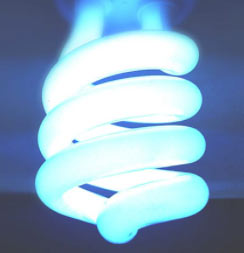Life Cycle Assessment of Energy and LED Lighting
Credit: 8 PDH Hours
Course Fee: $72.00
47 pages
How it Work!
- Register first and log into your account. Study and take the quiz for FREE until passed.
- After passing the quiz, follow the page, pay for the course and print your certificate.
Course Summary:
Light-emitting diode (LED) lighting has the potential to surpass many conventional lighting technologies in terms of energy efficiency, lifetime, versatility, and color quality. It is forecasted that LED lighting will represent 46 percent of general illumination lumen-hour sales by 2030, resulting in an annual primary energy savings of 3.4 quads (Navigant Consulting, Inc., 2012a). Increasing the efficiency of installed lighting products through the adoption of LED technology is an effective method to reduce the electricity consumed on site; however, to truly gauge the full energy (and environmental) impact of a lighting technology, the materials and energy resources used must be traced over the entire life cycle of the lamp. In other words, even though the energy consumed during the use of LED lamps is less than that consumed by compact fluorescent lamps (CFLs) and incandescent lamps, the question arises whether the energy and environmental benefits achieved during use of the product are outweighed by energy and/or environmental impacts during earlier phases in the life-cycle process. The U.S. Department of Energy (DOE) Solid-State Lighting (SSL) Program recognizes the importance of understanding life-cycle impacts, and that this evaluation is crucial prior to the mass adoption of LED lighting products. Early identification of potential energy and environmental benefits or concerns during manufacture, use, and disposal will allow for LED lighting technology to evolve in a responsible manner. This course is a course on Life cycle assessment of Energy and LED lighting a brief Review of the Life-Cycle Energy Consumption of Incandescent, Compact Fluorescent, and LED Lamps.

Learning Objective:
This course analyzes the energy consumption associated with three life-cycle phases: manufacturing, transportation, and use. The majority of data collected for this energy assessment of incandescent lamps, CFLs, and LED lamps is gathered from information provided in existing LCA reports. A total of ten publications provide the data and level of disaggregation necessary to develop a comprehensive analysis of the life-cycle energy for each lamp type.
By the end of the course the participant should be able to understand important concepts like Life- Cycle Assessment Background, Life cycle Energy Analysis, Lamp performance and functional unit.
Review the quiz before studying the course.
Course Content
Course Author: FDA
Certificate of completion of the course
This course comes with a multiple-choice quiz. You can view the quiz and take the quiz if you are logged in your account. You can take the quiz for this online PDH course as many times until passed. The passing grade is 70% and above. After you pass the quiz simply follow the page, to pay for the course and print your certificate instantly. A copy of the certificate and receipt for this course will always be in your account.
This online PDH course can also be used as a continuing education course for the following.
PE Mechanical Engineers
PE Environmental Engineers
PE Electrical Engineers

